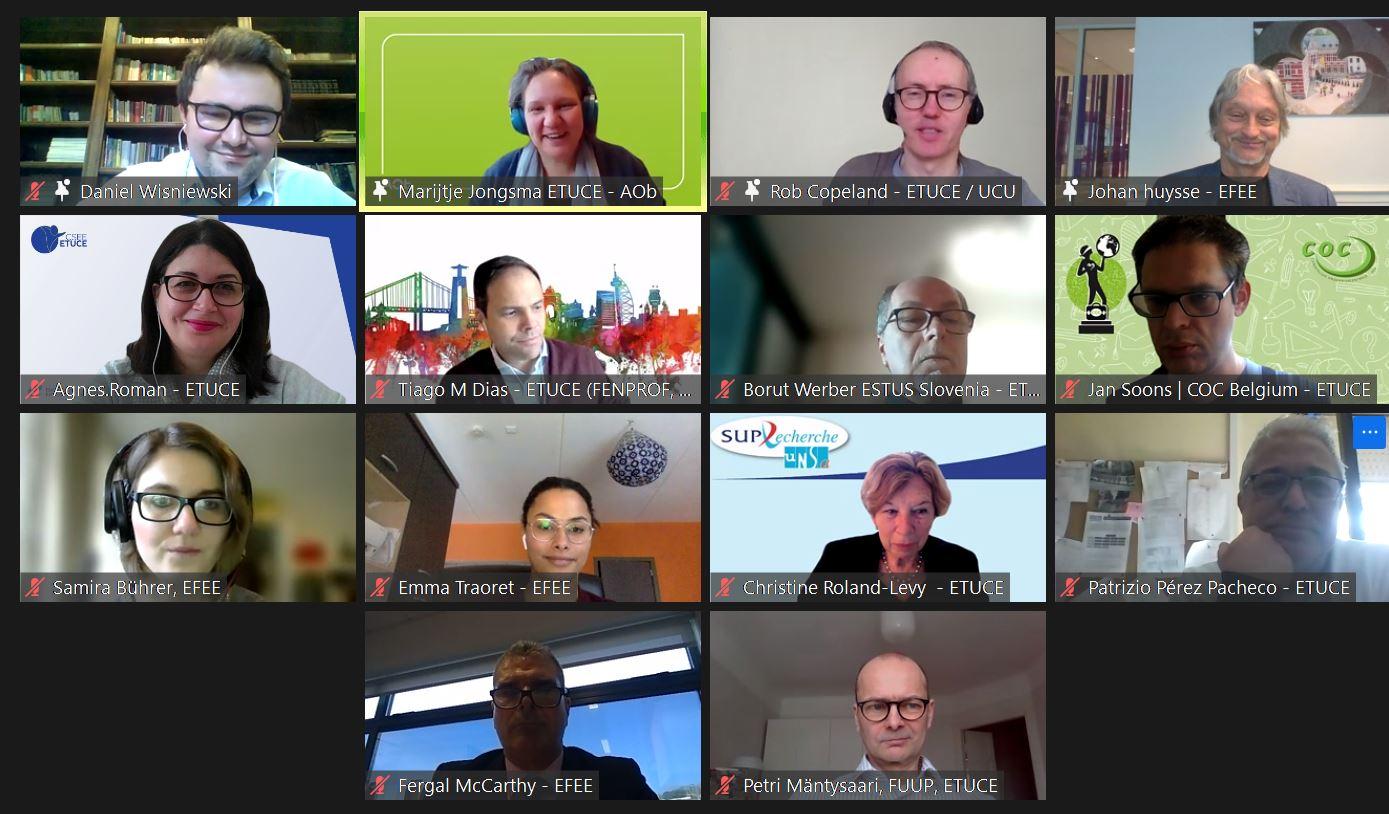Social dialogue is key to improve quality teaching and management
Published:
40 representatives of higher education trade unions and employers of ETUCE and EFEE member organisations met online on 9-10 February 2022 for the second Peer Learning Activity of the social partner project “Promoting Quality of Academic Teaching and Management”. The event hosted by the higher education social partners of the Netherlands linked to the work laid out by the European Sectoral Social Dialogue for Education Work Programme 2020-2021. The participants discussed some of the important issues relating to social dialogue in higher education as well as examples of good practice.
Research supporting the project found that ‘industrial issues’ such as pay were discussed frequently at national and institutional level through different forms and levels of social dialogue. However, more ‘professional issues’ such as innovation of teaching methods were less addressed in negotiations within social dialogue at national or institutional level. Education trade unions also pointed to the need for effective social dialogue at all levels, and not only a one-sided consultation.
Strong examples of social dialogue between education trade unions and employers in higher education came from the Dutch colleagues representing AOb and “Universities of the Netherlands” throughout the event. Education trade unions in the country have well established Collective Labour Agreements (CLA) and in the most recent round of negotiations have made progress in increasing the number of academics with permanent positions, improving working conditions, reducing the workload of academics and researchers, and training and development. However, there is still work to be done regarding the issues of salary, long-term employment and alternate career paths. To address the underfunding of higher education, Dutch education trade unions, employers and students rallied to increase investment in the sector, eventually gaining headway by convincing ministers to develop long-term investment plans.
However, there is still a lack of social dialogue in certain areas. Education trade unions were concerned that the recognition and rewards systems that is present in the Netherlands increases competition and lacks input from social partners. Participants from other countries outlined how recognition and awards in higher education and research are still based on the numbers of publications instead of qualitative indicators. It was underlined, that academics can only be creative and innovative if they are satisfied with their jobs and working conditions and the workload is manageable. More concrete career trajectories could foster more creativity and innovation than the current recognition system.
Likewise, trade union representatives outlined how social dialogue was essential in addressing gender equality. Equality committees within unions establish policies and actions to support the career development of female academics. Effective social dialogue and cooperation of the social partners with research organisations are important tools to reduce pay disparity amongst female and male academics and to fight against different types of harassments that female academics face. Education trade unions agreed that collegial governance and effective social dialogue are the only ways to bring lasting change and combat the managerial culture that treats universities like businesses driven by short term funding based on political ambitions.